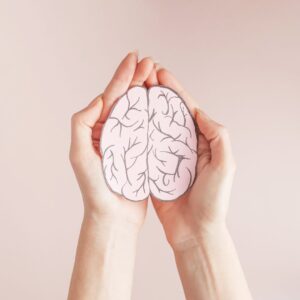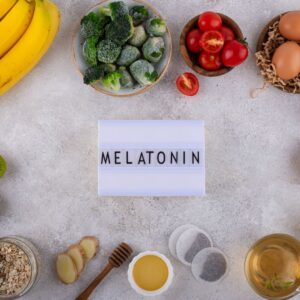Blog
Hidden Causes of Insomnia and the Best Natural Ways to Improve Sleep Quality
In today’s fast-paced world, insomnia and sleep disturbances have become increasingly common due to rising emotional, financial, and social stress. While many people assume that sleep problems are only caused by stress or emotional events, the truth is deeper—your lifestyle and nutrient deficiencies play a major role in disrupting your sleep cycle.
Feeling Tired After Sleeping? It Could Be a Hidden Form of Insomnia
Insomnia isn’t just about tossing and turning all night. Some people sleep for 7–8 hours but wake up feeling drained, as if they never rested at all. That’s because not all sleep is deep, restorative sleep—and that’s what your body truly needs.
Common forms of insomnia include:
- Difficulty falling asleep
- Frequent waking during the night
- Shallow sleep that lacks the deep sleep stage—essential for true recovery
If you sleep enough but wake up groggy or mentally foggy, chances are you’re missing the deep sleep stage, which is key to feeling recharged and focused the next day.
Why Deep Sleep Is So Important for Your Health
Deep sleep is the phase when your body heals, repairs tissues, strengthens the immune system, and balances your hormones. During this stage:

- Breathing and heart rate slow down
- Muscles fully relax
- Growth hormone is released for cell repair
- The brain clears out toxins
- Mood and memory get a major boost
In short, sleep quality matters more than how many hours you sleep. Without deep sleep, your body can’t reset properly—even if you’re in bed all night.
What are the causes of insomnia?
There are many root causes of insomnia beyond stress. These include:
- Irregular sleep schedule (night shifts, frequent late nights)
- Anxiety, depression, or emotional stress
- Nutritional deficiencies: low magnesium, iron, potassium, or vitamin D
- Low melatonin (your natural sleep hormone)
- Thyroid imbalances or insulin resistance
- Caffeine intake late in the day
- Heavy meals before bedtime
- Overuse of screens and blue light before sleep
- Medications that affect the nervous system (blood pressure, asthma, antidepressants)
If you suffer from thyroid issues, you can follow the link below to subscribe to Dr. Fajer AlJumairi’s full protocol guide about the hypothyroid/Hashimoto protocol.
Hypothyroid/Hashimoto Protocol
The Health Risks of Poor Sleep
Sleep deprivation doesn’t just make you grumpy—it can damage your long-term health:

- Poor concentration and decision-making
- Memory problems and brain fog
- Chronic stress, emotional instability, and feeling tired all day.
- Weakened immune system and higher risk of infections
- Weight gain due to hormonal imbalances
- Higher risk of high blood pressure and diabetes
- Hormonal disruption and low libido
- Premature aging and dull skin
- Balance issues and increased fall risk
- Hormonal chaos in women, especially during perimenopause or PMS
Natural Ways to Improve Sleep Quality
Luckily, you don’t need to rely on sleeping pills. There are powerful, natural sleep remedies and lifestyle tweaks that can make a real difference:

1. Optimize Your Sleep Environment:
- Keep your bedroom dark, quiet, and cool (ideally 65–68°F or 18–20°C)
- Avoid screens and blue light for at least an hour before bed
- Use blackout curtains or a sleep mask
- Block out noise with earplugs or calming white noise
2. Establish a Healthy Sleep Routine:
- Sleep and wake up at the same time daily—even on weekends
- Avoid long daytime naps
- Keep phones and laptops out of bed
3. Cut Out Sleep Disruptors:
- No caffeine after 2 PM
- Avoid heavy or spicy meals at least 3 hours before bedtime
- Limit evening sugar and fat intake
Sleep-Boosting Foods to Add to Your Evening Routine
Certain foods naturally support melatonin and serotonin production:

- Bananas
- Almonds
- Walnuts
- Oats
- Boiled eggs
Natural Supplements for Better Sleep
Some people benefit from natural sleep supplements when used properly:
- Magnesium
Relaxes muscles and calms the nervous system. Great for people with tension and poor sleep quality.
- Passionflower
Soothes the nervous system and reduces anxiety.
Note: Avoid during pregnancy or if you have heart rhythm disorders.
- Valerian Root

Promotes deep sleep by increasing GABA levels in the brain.
Note: Not safe for pregnant/breastfeeding women, kids under 3, or those with liver issues. Don’t drive after using it.
- Vitamin B12
Helps regulate your circadian rhythm and supports nerve health. Deficiency may be linked to poor sleep patterns.
- Glycine
A calming amino acid that can reduce sleep latency and improve morning alertness.
- L-Tryptophan
Essential for serotonin and melatonin production—great for mood (supports brain function) and sleep.
Note:
- Use with caution if you take antidepressants or serotonin-related medications.
- Not recommended for people with hyperthyroidism or Grave’s disease.
- Avoid if you’re taking MAOIs or have untreated thyroid disorders.
Note: Some of these supplements require consistent use over days or weeks to show results.
Nervine Tonics: Herbal Support for a Calm Nervous System
Herbs that nourish and balance the nervous system can also improve sleep over time:
- Milky Oats (Avena sativa): Traditionally used for emotional burnout and nervous exhaustion
Final Thoughts
Insomnia is more than a sleep issue—it’s your body’s way of signaling imbalance. The good news? You can fix it naturally. By cleaning up your sleep routine, optimizing nutrition, and using safe, natural support when needed, you’ll not only sleep better—you’ll wake up to a healthier, more energized you.

